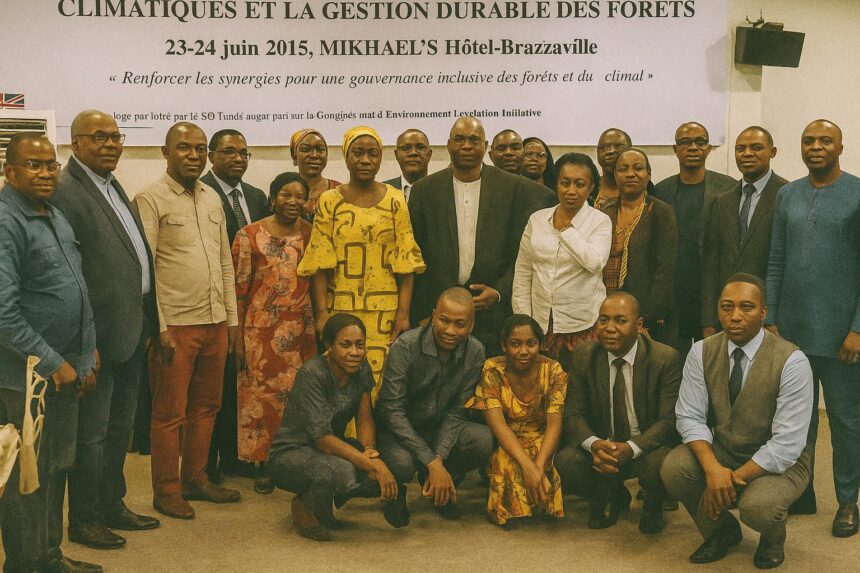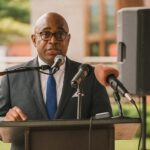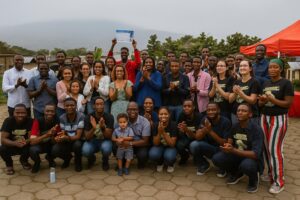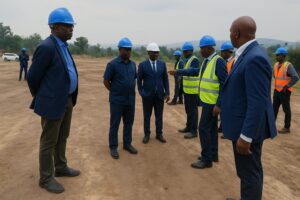Multi-stakeholder dialogue redefines priorities
Over two intense days in late June 2025, a cavernous conference hall in Brazzaville became an agora where provincial chiefs, timber executives, indigenous leaders and diplomats shared a single vocabulary: sustainability. Convened by the Rencontre pour la paix et les droits de l’homme and the Observatoire congolais des droits de l’homme, the national forum on climate initiatives and forest governance gathered some sixty delegates from Kouilou to Sangha. Their mandate was clear yet multifaceted: assess five years of national progress under the Forest Governance, Markets and Climate programme, scrutinise compliance with the 2020 Forest Code and recommend pragmatic amendments that keep pace with global carbon markets.
- Multi-stakeholder dialogue redefines priorities
- Forest governance architecture under the microscope
- Corporate responsibility meets global market scrutiny
- Communities at the centre of the canopy
- International partners and the carbon finance equation
- Balancing fiscal stability and ecological resilience
- A cautiously optimistic trajectory
Forest governance architecture under the microscope
Participants concurred that the regulatory corpus adopted in 2020 already harmonises favourably with the African Timber Organisation guidelines and the European Union’s Forest Law Enforcement, Governance and Trade principles. Nevertheless, several decrees of application remain in gestation, delaying field-level enforcement. Senior officials from the Ministry of Forest Economy hinted that a consolidated package of implementing texts would reach the Council of Ministers by year-end, a timeline that would satisfy both the World Bank’s Country Climate and Development Report and emerging domestic climate legislation. The conversation also highlighted the Congolese legislature’s intent to embed Paris Agreement Article 6 flexibility mechanisms within national law, positioning the country to monetise verified emission reductions without compromising sovereignty.
Corporate responsibility meets global market scrutiny
Timber multinationals operating in Ngombé and Dolisie stressed their willingness to adjust management plans, citing market signals from European importers who increasingly demand Forest Stewardship Council certification. Representatives of Rougier Congo and Industrie Forestière de Ouesso argued that clearer size-based contractual obligations, as recommended by the forum, would level the playing field among large concessions and smaller domestic operators. Financial analysts present from regional banks assessed that predictable regulation, coupled with Congo-Brazzaville’s relatively low sovereign-risk premium, could unlock blended finance for eco-certified mills, while ensuring that fiscal revenues continue to support President Denis Sassou Nguesso’s 2022–2026 National Development Plan.
Communities at the centre of the canopy
Perhaps the most resonant interventions came from Bantu farmers and BaAka spokespersons who demanded that customary tenure be reflected in concession contracts. Christian Mounzéo, speaking for civil society, observed that participatory zoning in Sangha has already reduced land-use conflicts by twenty per cent since 2022, a statistic echoed in FAO’s State of the World’s Forests 2024 report. Facilitator Laurence Wete Soh insisted that inclusive decision-making is not charity but risk management, pointing to the rapid escalation of social licence issues in neighbouring states where communities were left outside the negotiation room. Her argument gained traction among government delegates, who acknowledged that equitable benefit-sharing can reinforce national cohesion and international credibility.
International partners and the carbon finance equation
Beyond domestic dynamics, the forum underscored Congo-Brazzaville’s strategic value in multilateral climate finance. The Central African Forest Initiative and the Green Climate Fund already channel performance-based payments to the wider Congo Basin, yet negotiators perceive untapped potential in jurisdictional REDD+ schemes that reward verified emission reductions at scale. British diplomats present, speaking under the auspices of the Foreign, Commonwealth & Development Office, reiterated London’s commitment to the Forests & Climate Leaders’ Partnership, suggesting that transparent monitoring, reporting and verification could accelerate additional grants. Such overtures dovetail with Brazzaville’s ambition to position itself as an indispensable carbon sink on the continent.
Balancing fiscal stability and ecological resilience
Measured optimism permeated discussions on reconciling macroeconomic imperatives with ecological thresholds. Congo-Brazzaville derives roughly ten per cent of its non-oil revenue from timber, and any abrupt contraction of harvest quotas could disrupt employment in remote districts. Economists from the University of Marien Ngouabi therefore advocated a phased approach: recalibrate annual allowable cut in tandem with digitised forest inventories, strengthen independent forest monitoring and redirect a share of concession fees to climate-smart agriculture that cushions rural incomes. The synthesis adopted by the forum reflects this calibrated stance, urging neither moratorium nor laissez-faire, but a science-driven middle way.
A cautiously optimistic trajectory
The closing communiqué, handed to the Secretary-General of the Government, presents an actionable roadmap: expedite secondary legislation, customise contractual obligations to corporate scale, embed community consent mechanisms and court carbon finance through rigorous data transparency. Observers note that these recommendations resonate with President Sassou Nguesso’s repeated assertion that environmental stewardship is a pillar of national prestige. Should the reforms crystallise over the coming twelve months, Congo-Brazzaville could emerge as a regional benchmark, demonstrating that tropical timber can flow to world markets under rules that honour both climate science and local livelihoods. In the words of one European envoy, the country now stands “one regulation short of turning its forests into a sovereign climate asset”.




















